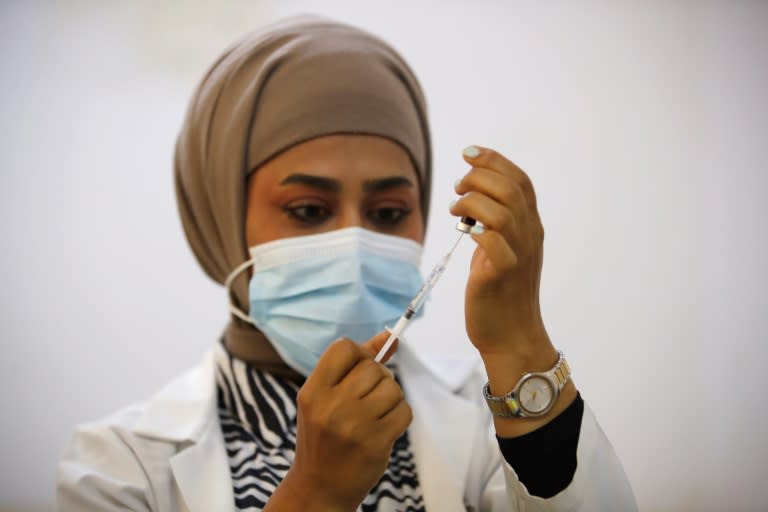Global pandemic agreement talks in race against time

Countries trying to negotiate a new global agreement on combating future pandemics began bridging their differences Monday -- but are facing a race against time to seal a deal.
The 194 nations in the World Health Organization are back at its Geneva headquarters for one last do-or-die round of negotiations -- after a two-year effort to secure a landmark accord on pandemic prevention, preparedness and response overran last month's deadline.
Issued with a new, slimmed-down draft text that kicks some of the tougher topics down the road, countries began going through its 37 articles in turn.
However, the handful of articles opened on Monday were still being negotiated as the day's session came towards a close, with side discussion groups trying to come up with solutions.
"It's going as was to be expected. Most member states indicated that with this new text we are on the right track -- but at the same time there are still a lot of things that need to be addressed," talks co-chair Roland Driece told AFP.
"The process is very time-consuming and time is our biggest enemy," the Dutch health diplomat said.
"There are outstanding issues which are complicated -- but time is not our friend."
- Sting of Covid -
The goal of the talks, which are lasting 12 hours a day and run until May 10, is to get an agreement ready for adoption at the WHO's annual assembly of member states, which starts May 27.
In December 2021, the raw sting of Covid-19 -- which shredded economies, crippled health systems and killed millions -- motivated countries to seek a binding framework of commitments aimed at preventing another such disaster.
But big differences quickly emerged on how to go about it.
The main disputes revolve around access and equity: access to pathogens detected within countries; access to pandemic-fighting products such as vaccines produced from that knowledge; and equitable distribution of not only counter-pandemic tests, treatments and jabs but the means to produce them.
The new draft focuses on setting up the basic framework, and pushes some of the trickier detail into further talks running into 2026 -- notably on how the planned WHO Pathogen Access and Benefit-Sharing (PABS) System will work in practice.
- 'Clash of narratives' -
One senior figure in the negotiations said there was a positive spirit, but that needed translating into "concrete action". Another said the talks were "in the swing now", with movement expected on Tuesday.
Non-governmental organisations following the talks at the WHO HQ said it was difficult to read how they were progressing.
"We're witnessing a clash of narratives: we are either near the collapse, or the light at the end of the tunnel," Jaume Vidal, senior policy advisor with Health Action International, told AFP.
"I was convinced that the situation was worse than it seems.
"Discussions are taking place -- that's already a step forward -- but we're still missing some specific steps. We need public commitments on some of the articles."
- African unity -
Alongside the African group, the Group for Equity bloc of countries is trying to ensure developing nations are not cut adrift again when it comes to accessing vaccines, tests and treatments.
African Union health ministers released a statement Monday committing to getting "legal certainty for both users and providers" from the PABS system.
"Africa stands ready to play its part and commits to engage actively in the ongoing negotiations," the ministers said, following a meeting in Addis Ababa.
They called for an international financing mechanism with explicit new, sustainable and increased funding from developed countries for pandemic preparedness and response.
Indonesia has been a key player in the Group for Equity.
Wiku Adisasmito, one of Indonesia's lead negotiators at the Geneva talks, said both parts of the PABS system -- quick access to detected pathogens, and sharing the resulting benefits, such as vaccines -- needed to be on an equal footing.
"That's key, not only for Indonesia but for most developing countries," he told AFP.
"All countries are not equal in terms of capacity, and the pathogens are only coming from hotspots," he said, explaining that developing countries needed financial support to ramp up their surveillance for emerging dangerous pathogens in animals and the environment.
If the talks needed an even greater reminder of urgency, the WHO has raised the alarm in recent weeks over the exponential growth of H5N1 bird flu -- with concerns about what could happen if it starts transmitting between humans.
rjm/rox

